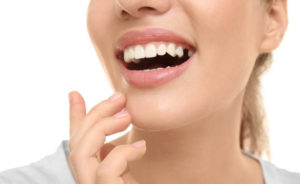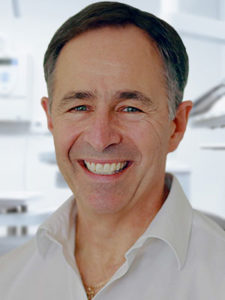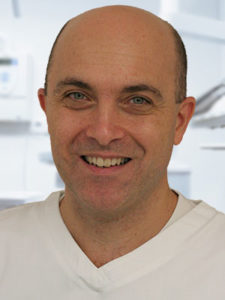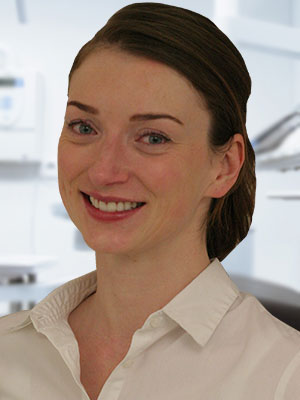Looking for Bridges and Dentures? Call Preventive Dental today on
020 8874 3877
Why should I replace missing teeth?

Your appearance is one reason. Another is that the gap left by a missing tooth can mean more strain is put on the teeth at either side. A gap can also mean your ‘bite’ is affected, because the teeth next to the space can lean into the gap and change the way the upper and lower teeth bite together. This can then lead to food getting packed into the gap, which causes tooth decay and gum disease.
For bridges and dentures you can see:
Morris Weinstein, Giuseppe Di Filippo, Elizabeth Basset
How are missing teeth replaced?
This depends on the number of teeth missing and on where they are in your mouth. The condition of the teeth you still have also affects the decision.
There are three main ways to replace missing teeth. The first is with a removable false tooth (or teeth) – called a partial denture. The second is with a fixed bridge. A bridge is usually used when there are fewer teeth to replace, or when the missing teeth are only on one side of the mouth. The third way is by the use of dental ‘implants’. This is where an artificial root is placed into the bone of the jaw and a crown or bridge placed on top of this.
What is a partial denture?
This is a plate with one or more false teeth on it. It may be all plastic or a mixture of metal and plastic. Both types may have clips (clasps) to help keep the denture in place in your mouth. Depending on where they are, some of these clips may show when you smile or open your mouth.
What is the difference between a plastic partial denture and one that contains metal?
Plastic partial dentures are less expensive to make. But unless they are designed very carefully they can damage the teeth they fit against.
Metal partial dentures are usually made from an alloy of cobalt and chromium, and they are much stronger.
They are lighter to wear and can be supported by the remaining teeth. Although the base is metal, they have gum-coloured plastic and natural-looking teeth fixed to them. They are more expensive than plastic ones.
How do I choose the best type for me?
Be guided by your dentist. They will know the condition of your remaining teeth. In most cases a metal-based partial denture gives the best result.
Can I have a bridge fitted straight after having a tooth removed?
It can take up to 6 months for your gums to heal properly after an extraction. This means that you may need to have a temporary denture before the bridge is fitted.
What is the alternative to a partial denture?
The main alternatives are a fixed bridge or a dental implant. A dental bridge is made by putting crowns on the teeth at either side of the gap, and then joining these two crowns together by placing a false tooth in the space.
This is all made in the laboratory and then the pieces are cemented into place with special adhesives. The bridge can’t be removed.
Another option is an adhesive bridge. This has ‘wings’ that are bonded to the back of the supporting teeth, with very little drilling needed.
Can I always have a bridge to replace missing teeth?
You can have a bridge only if you have enough strong teeth with good bone support. Your dental team will help you decide which the best way of replacing missing teeth is.
What are bridges made of?
Bridges are usually made of porcelain bonded to precious metal. Sometimes other non-precious metals are used in the base for strength. There are also new bridges made entirely of a special type of strong porcelain.
Can I have teeth which attach to the jawbone?
Yes, by having implants. The success of this technique means you may be able to replace missing teeth without crowning other teeth.
Remember that it is as important to care for your remaining teeth as it is to replace the missing ones.

Morris is from South Africa where at the tender age of 22 years old, he graduated as a dentist from the University of Witwatersrand in Johannesburg. After two years in the army he arrived in London in 1982. In 1986 he established the Preventive Dental Practice in Southfields. The practice has grown from strength to strength based on its philosophy of total, gentle dental care. Morris has pursued his passion for quality and excellence studying the prevention of dental and gum disease, as well as developing his skills and knowledge in cosmetic techniques, orthodontics and dento-facial orthopaedics.
Morris is married to Gail who is a teacher. They have three sons Glen 25, Michael 22 and David 20. Gail is a keen walker and the boys are basketball fans whilst pursuing fitness and bodybuilding passions as well as martial arts. Morris is a keen cyclist, regularly taking part in international events most recently in France, Brazil and Italy. He has also completed several London marathons and triathlons always raising funds for his favourite charities.

Giuseppe is from Italy, where he qualified as a dental surgeon in 1994. He has spent most of his professional career in London and has worked successfully with prestigious dental clinics, including Boots Dentalcare in Kensington. He is highly experienced in Endodontics (root canal therapy) as well as general restorative dentistry.
Giuseppe was awarded a Masters in Endodontic Practice by the Queen Mary University of London and his research project on root canal treatment was published in the British Dental Journal. Giuseppe also worked as specialty doctor in Endodontics at the Royal London Hospital and he is currently a Clinical Lecturer at Queen Mary’s.
He lives in Wimbledon Park with his South African wife Onitha and his son Nicolas. He enjoys cooking, reading and visiting art galleries. He is also an enthusiastic football supporter.
Elizabeth Basset – I am a careful and considerate dentist who is always happy to talk through any questions with my patients. I listen to my patients and believe that dental treatment should be a collaboration between the dentist and the patient. I enjoy working with nervous and anxious patients and provide both family and cosmetic dentistry. The best part of my job involves working with my patients to get them the smile that they deserve so that they can feel confident about the health of their teeth.
After working in practice for a few years I travelled to Ghana and worked for a dental charity for four months where I provided dental care for communities who had no access to dental treatment. I trained staff to continue to care for patients after I left. I have raised money for Dentaid (a dental charity) by running the Great North Run several times and I believe that it is important to give my spare time to charitable work.
I graduated from the University of Sheffield. I have a Masters in Prosthodontics (crowns, bridges and dentures) from the University of Manchester and an interest in Dental Law and Ethics
When I’m not at work I’m often out running with my husband – I may be seen running home from work when I’m feeling energetic. I have a son called Reuben who was born in 2015 and I live up the road in Southfields with my husband Paul.
